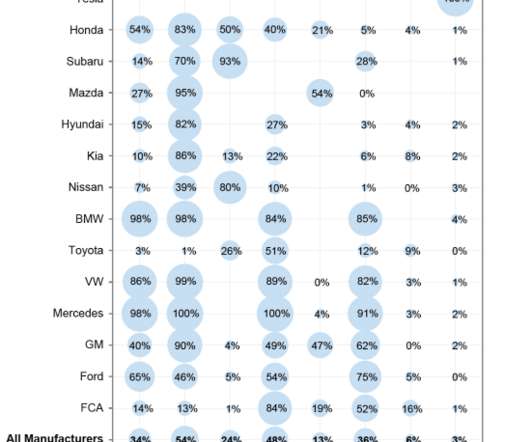EPA’s annual automotive trends report shows slight increase in fuel economy from MY2017 to MY2018
Green Car Congress
MARCH 3, 2020
In the US, Model Year (MY) 2018 vehicle fuel economy was 25.1 In model year 2018, the average estimated real-world CO2 emission rate for all new vehicles fell by 4 grams per mile (g/mi) to 353 g/mi, the lowest level measured since 1975, when EPA data collection began. 0 g/mi—and highest fuel economy, at 113.7











Let's personalize your content